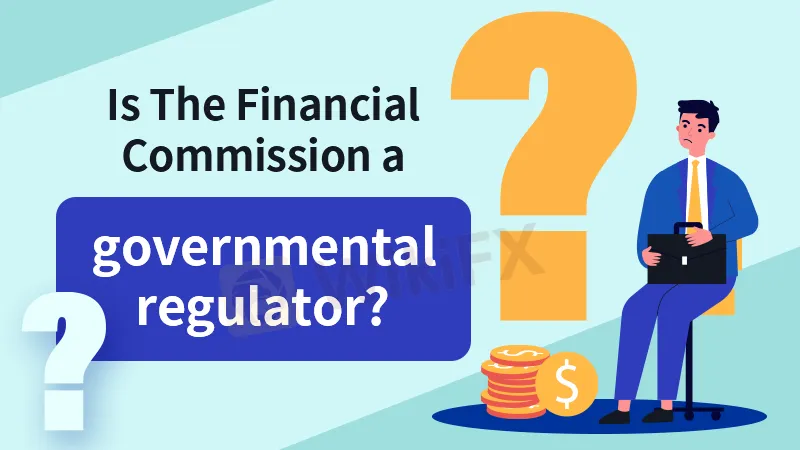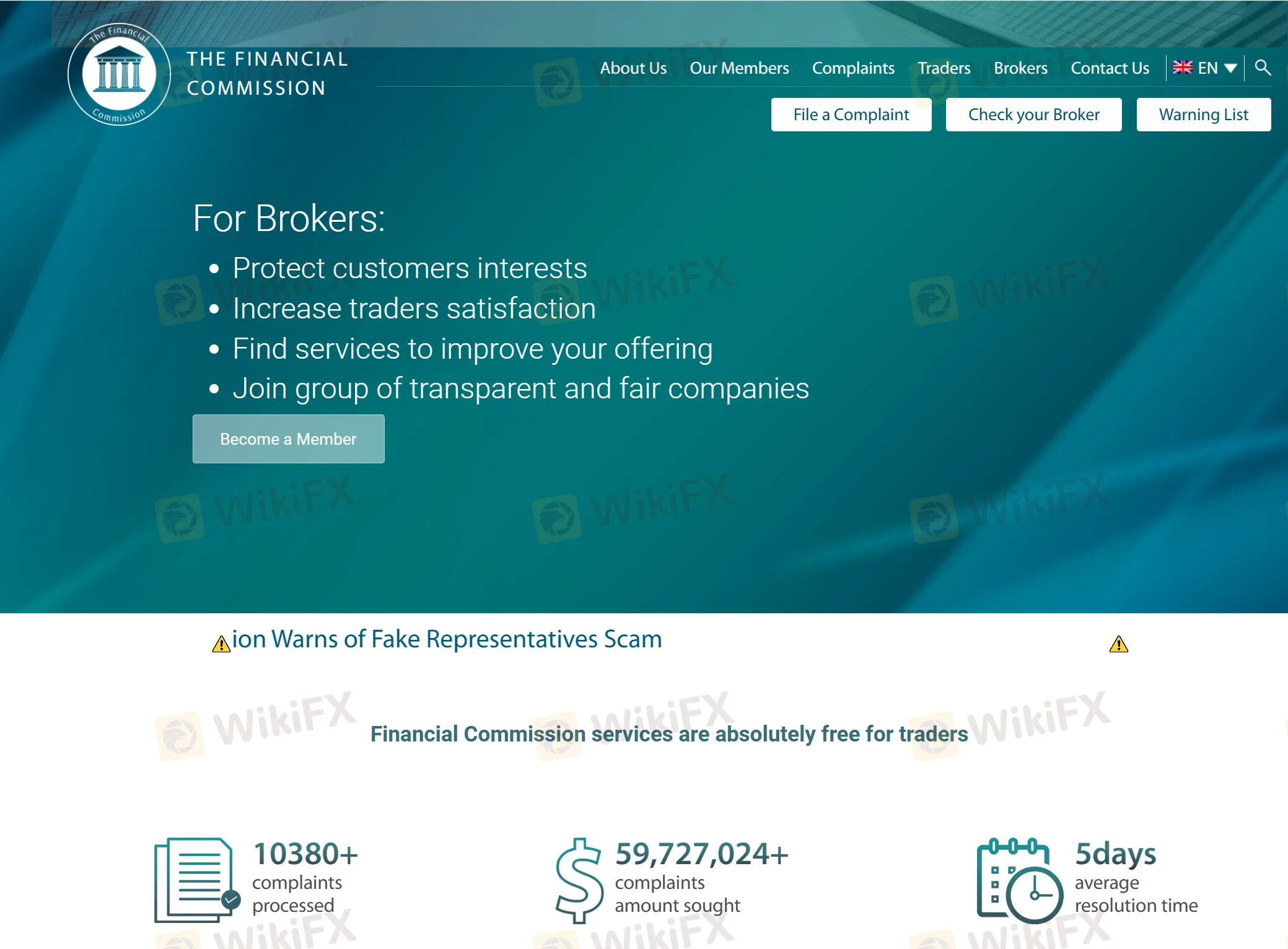简体中文
繁體中文
English
Pусский
日本語
ภาษาไทย
Tiếng Việt
Bahasa Indonesia
Español
हिन्दी
Filippiiniläinen
Français
Deutsch
Português
Türkçe
한국어
العربية
Is The Financial Commission a governmental regulator?
Abstract:With the rise of online trading platforms, the need for robust oversight has never been more critical. Enter "The Financial Commission," a company that has garnered attention for its mission to expose scam brokers. However, a closer examination reveals complexities and considerations that investors should be aware of before placing blind trust in its pronouncements.

With the rise of online trading platforms, the need for robust oversight has never been more critical. Enter “The Financial Commission,” a company that has garnered attention for its mission to expose scam brokers. However, a closer examination reveals complexities and considerations that investors should be aware of before placing blind trust in its pronouncements.
Founded with the goal of safeguarding investors from fraudulent practices, The Financial Commission operates independently of governmental regulatory bodies. While its intentions may be commendable, it's essential to recognize the limitations inherent in its role. Unlike official regulators empowered by legislation, The Financial Commission lacks the authority to enforce compliance or impose sanctions on errant brokers.


Central to understanding The Financial Commission's efficacy is its methodology for identifying and exposing scam brokers. The company employs its own set of criteria, which may not necessarily align with industry standards or represent a consensus within the market. Consequently, there is a degree of subjectivity involved in its assessments, raising questions about the objectivity and reliability of its revelations.
Moreover, it's crucial for investors to exercise discernment when interpreting the findings published by The Financial Commission. While the company endeavors to provide valuable insights, its determinations may not carry the same weight as those made by established regulatory bodies. Investors should view its revelations as one of many sources of information and not as a definitive verdict on a broker's legitimacy.
In navigating the complexities of the financial industry, regulatory exposure in the private sector can offer guidance but should not be solely relied upon. Investors must conduct thorough due diligence, drawing upon a variety of reputable sources, including governmental regulators, industry experts, and independent reviews.
Ultimately, while The Financial Commission plays a role in exposing scam brokers, it's essential for investors to maintain a critical perspective. While its efforts are commendable, they should be viewed as complementary rather than a substitute for official oversight. In the quest for a trustworthy trading experience, prudence and vigilance remain investors' most potent allies.

Disclaimer:
The views in this article only represent the author's personal views, and do not constitute investment advice on this platform. This platform does not guarantee the accuracy, completeness and timeliness of the information in the article, and will not be liable for any loss caused by the use of or reliance on the information in the article.
Read more

USD/INR, USD/PHP Forecast April 2025
The global forex markets are bracing for April 2025 with divergent forecasts for key emerging market pairs. In particular, the USD/INR and USD/PHP pairs have attracted significant attention amid a mix of central bank interventions, evolving U.S. policy signals, and regional economic shifts. In this article, we review multiple forecasts, examine the driving factors, and outline what traders might expect as the month unfolds.

April Forex Trends: EUR/USD, GBP/USD, USD/JPY, AUD/USD, USD/CAD Insights
Know April’s forex seasonality trends for EUR/USD, GBP/USD, USD/JPY, AUD/USD, and USD/CAD. Historical insights and key levels to watch in 2025.

Should You Beware of Forex Trading Gurus?
Know the reality behind forex trading gurus, examining their deceptive tactics, inflated promises, and the risks associated with trusting them for financial advice.

Webull Launches SMSF Investment Platform with Zero Fees
Webull introduces commission-free SMSF trading, offering over 3,500 US and Australian ETFs, with no brokerage fees and enhanced portfolio tools.
WikiFX Broker
Latest News
Exposing the Top 5 Scam Brokers of March 2025: A Closer Look by WikiFX
Gold Prices Climb Again – Have Investors Seized the Opportunity?
Webull Launches SMSF Investment Platform with Zero Fees
Australian Regulator Warns of Money Laundering and Fraud Risks in Crypto ATMs
The Withdrawal Trap: How Scam Brokers Lure Victims into Paying More
FCA to Investors: Think Twice Before Trusting These Brokers
Trump\s tariffs: How could they affect the UK and your money
Trump gambles it all on global tariffs he\s wanted for decades
HTFX Spreads Joy During Eid Charity Event in Jakarta
How Will the Market React at a Crucial Turning Point?
Currency Calculator


